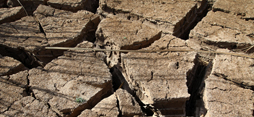

Topics
Environmental Crimes
Environmental crimes
UNICRI considers environmental crime, including its links with other forms of crime, a serious and growing danger for development, global stability and international security.
Since 1991, UNICRI has contributed to combating crimes against the environment and related emerging threats through applied research, awareness and capacity-building initiatives. UNICRI has built a strong international network of experts and practitioners from major international organization, law enforcement agencies, NGOs and academic entities active in the field.
Transnational threat of environmental crimes
Environmental crimes encompass a broad list of illicit activities, including illegal trade in wildlife; smuggling of ozone-depleting substances (ODS); illicit trade of hazardous waste; illegal, unregulated, and unreported fishing; and illegal logging and trade in timber. On one side, environmental crimes are increasingly affecting the quality of air, water and soil, threatening the survival of species and causing uncontrollable disasters. On the other, environmental crimes also impose a security and safety threat to a large number of people and have a significant negative impact on development and the rule of law. Despite these issues, environmental crimes often fail to prompt the appropriate governmental response. Often perceived as ‘victimless’ and incidental crimes, environmental crimes frequently rank low on the law enforcement priority list, and are commonly punished with administrative sanctions, themselves often unclear and low.
The involvement of organized criminal groups acting across borders is one of many factors that have favoured the considerable expansion of environmental crimes in recent years. Led by vast financial gains and facilitated by a low risk of detection and scarce conviction rates, criminal networks and organized criminal groups are becoming increasingly interested in such illicit transnational activities. These phenomena fuel corruption and money-laundering, and undermine the rule of law, ultimately affecting the public twice: first, by putting at risk citizens’ health and safety; and second, by diverting resources that would otherwise be allocated to services other than criminal activities.
The level of organization needed for these crimes indicates a link with other serious offences, including theft, fraud, corruption, drugs and human trafficking, counterfeiting, firearms smuggling, and money laundering, several of which have been substantiated by investigations. Therefore, environmental crimes represent today an emerging form of transnational organized crime requiring more in-depth analysis and better-coordinated responses at national, regional and international levels.
Role of UNICRI in supporting Member States and the international community in preventing and countering environmental crimes
The first research projects conducted by UNICRI addressed the issue of environmental law, and in particular explored the limits and potentials of applying criminal law in crimes related to environment. In June 1998, UNICRI organised in Rome a seminar on international environmental conventions and the administration of criminal law. Since then, the Institute has focused on the involvement of organized criminal groups in environmental crime.
To increase awareness of the threat of environmental crime, UNICRI contributed to the organization of the conference entitled Illicit trafficking in waste: a global emergency (Rome, December 2011), with the participation of the Ministry of the Environment of Italy, parliamentarians, international partners such as the International Criminal Police Organization (INTERPOL), and many stakeholders involved in countering trafficking in and dumping of toxic waste. To enhance understanding of the dynamics of environmental crime, the Institute implemented a research and data collection project focused on the dumping of illegal waste and hazardous materials, including e-waste, and the involvement of organized crime.
In partnership with several research institutes, civil society organizations, and municipalities, UNICRI has launched a process for consultation at the international level on the involvement of organized crime in environmental crime, with a view to identify a set of recommendations for more effective policies and actions at the national, regional and international levels. To that end, the Institute, in partnership with the United Nations Environment Programme (UNEP), has organized an international conference in Italy on 29 and 30 October 2012 (see dedicated section).
UNICRI has implemented several international and regional applied-research projects related to the illegal trade and trafficking goods having an adverse impact on the environment, including e-waste, illicit pesticides and precious metals (see dedicated sections).




